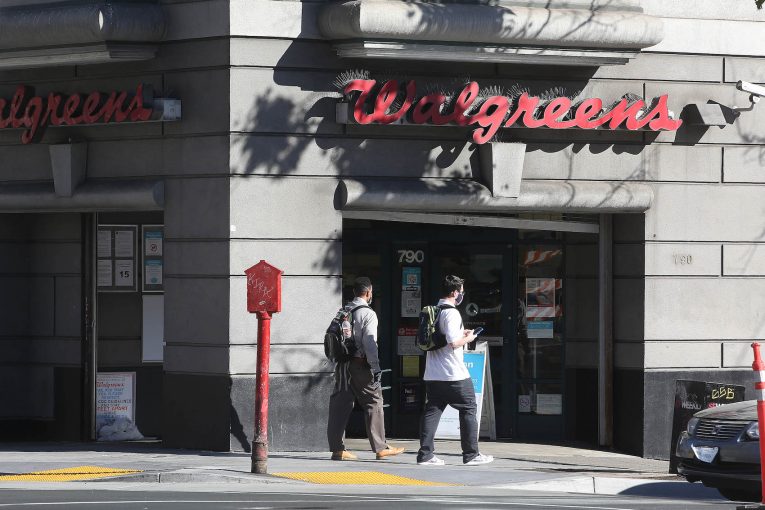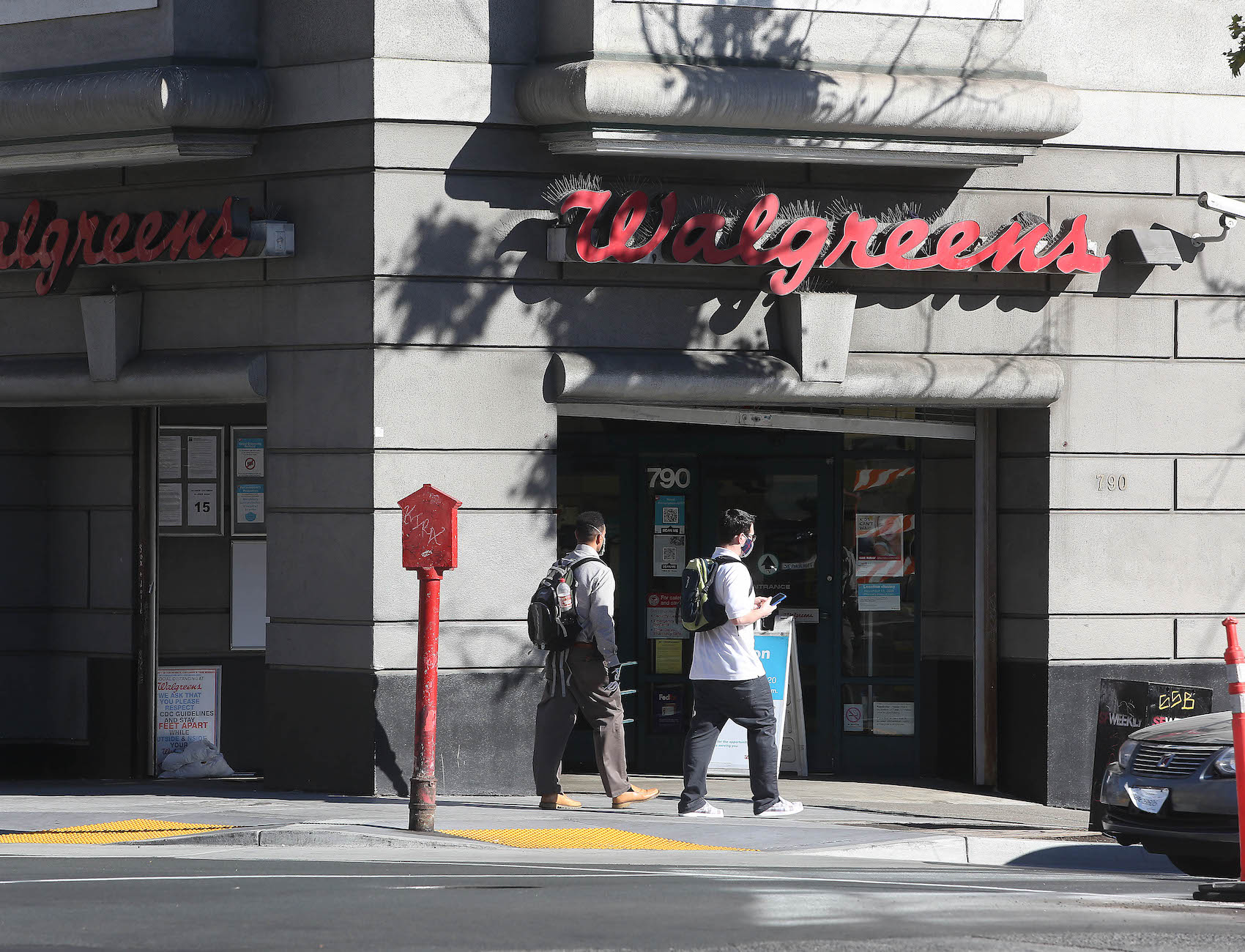

Photo by Lea Suzuki/The San Francisco Chronicle via Getty Images.
By David M. Greenwald
Executive Editor
San Francisco, CA – Nearly a year ago, San Francisco voters, frustrated at the scope of the city’s problems and blaming them on progressive prosecutor Chesa Boudin, decided to remove the reformer from office and, in his stead, Mayor London Breed installed a more traditional prosecutor, Brooke Jenkins.
But San Francisco’s problems have not surprisingly remained—as systemic problems of homelessness, income inequality and poverty have combined with the high cost of housing and opioid epidemic to produce continued problems that the criminal legal system is poorly equipped to deal with.
In the meantime, in trying to reverse the pendulum, Jenkins has swung things too far—reversing decisions to prosecute police officers for use of force and shootings, while declining to prosecute a security guard for the shooting death of Banko Brown.
Jenkins, on Monday, after weeks of pressure finally released security footage and, far from reassuring the public, it has inflamed it.
As one barometer, State Senator Scott Wiener put out a statement earlier this week expressing alarm at what he saw in the video.
“Yesterday, the District Attorney released video and witness statements relating to the shooting death of Banko Brown by a Walgreens security guard,” said Senator Wiener. “I’ve repeatedly watched the video and reviewed the other released evidence, and I honestly cannot see a justification for this shooting.”
The Senator is no opponent of the DA, noting, “I respect the criminal process in San Francisco, and I respect the District Attorney and the difficult choices she has to make every day. But a lack of any criminal responsibility for this shooting makes no sense to me.”
And like many, he expresses frustration at the problem of shoplifting, but notes, “While shoplifting is a problem in San Francisco that needs to be addressed, shooting someone for shoplifting is truly horrific and must never be tolerated.”
Likewise, Board of Supervisors President Aaron Peskin, said, “Allowing what appears, at a minimum, to be an unjustified shooting does not make us safer. It does not make us better. It should make us ashamed.”
The San Francisco Chronicle has been particularly critical of the handling of the incident by the DA.
They review the security footage captured by Walgreens.
In an editorial, they note, “We see the security guard, Michael Earl-Wayne Anthony, block the door as Brown tries to exit the store. When Brown bumps into him, Anthony throws punches and puts Brown in a choke hold before taking him to the ground. When Brown gets up to leave the store, Anthony follows him. After briefly making a gesture in Anthony’s direction, Brown then backs through the door onto the sidewalk, where Anthony shoots him once in the chest.”
The DA in a press conference and also a release, says that this evidence “clearly showed the security guard acted in self-defense — and reaffirmed her decision not to press charges against Anthony.”
But the Chronicle argues, “Far from assuring the public of the merit of Jenkins’ stance, however, the video’s release appears to have done the opposite. To the untrained eye, the shooting, as captured on the security video, looked little like self-defense.”
The Chronicle consulted with legal experts “who reviewed the video and other materials about the incident released by Jenkins’ office were torn over what they saw.”
The Chronicle continued, “In all of this, Jenkins has asked the public to trust her. But, as we have written before, trust has to be earned, and Jenkins stumbled badly in this case. The shooting of an unhoused, unarmed, trans man, allegedly for stealing food, was always going to be tragic and heated. With sensitivity and transparency, Jenkins could have presented evidence weeks ago, upon announcing her decision not to file charges, while simultaneously rallying the city to achieve more humane outcomes for those in need.”
But they point out “that didn’t happen” and they note, “This isn’t the first time Jenkins has struggled where transparency and sensitivity are concerned.”
They add, “At a time of tremendous strife and doubt surrounding the city’s future, San Franciscans need to be able to have faith that its criminal justice system can operate fairly and transparently. Instead, anger born of mistrust once again abounds.”
The Chronicle asks, what does accountability look like. They note the possibility of a civil lawsuit.
But they add that “we also can’t ignore the city’s role in the events leading up to the shooting.”
They continue, “Brown’s community is outraged over Jenkins’ refusal to press charges, but it has also slammed the city for its longstanding inability to help Brown, who was unhoused, obtain the basic resources he needed to stay alive.”
While I understand the frustration over shoplifting, the minor nature of Brown’s crime does not warrant the use of deadly force—we would not tolerate that from a trained police officer, and we certainly cannot tolerate it from a relatively untrained security guard.
There has to be another way. And the failure of cities like San Francisco, a wealthy community, to address these kinds of problems is troubling.
As the Chronicle notes, “In a city as wealthy as San Francisco, hungry people shouldn’t have to steal food, let alone risk being shot for doing so.”
But for those experiencing poverty, “recent state and federal cuts to food assistance programs combined with skyrocketing grocery prices are leaving many hungry.”
These issues are often interrelated, and we are not going to solve these types of problems with heavier enforcement by law enforcement. That’s unfortunately a lesson that we have yet to learn.


DA Jenkins, the Chronicle, Senator Wiener and Supervisor Peskin must have either not all seen the same video footage or Jenkins’ definition of self-defense varies significantly from the commonly accepted definition.
I was surprised as well, when I watched the video. I saw no real justification for it, OR for the physical confrontation prior to the actual shooting. In fact, I understood that guards (these days) are pretty much instructed to NOT engage in such confrontations – partly because of results like this.